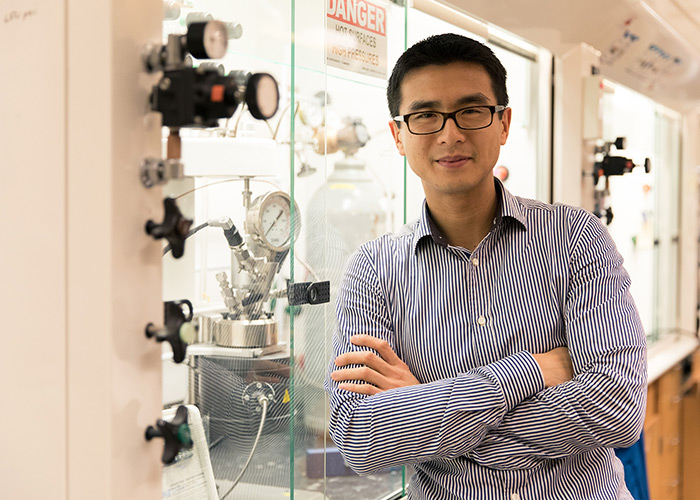UH Chemist Loi Do Receives NSF CAREER Award for the Work
From plastic bags to paints, sporting goods and auto parts, a type of plastic known as polyolefins is ubiquitous in modern life.
 But despite the fact that these polyolefins – organic polymers that comprise extended
chains of saturated carbon-carbon bonds – have been produced commercially since the
1930s, there is still a need for more versatile production processes. A chemist at
the University of Houston has received a five-year, $626,300 National Science Foundation
CAREER Award to develop new methods of producing polyolefins in an economical and
sustainable way that also can be scaled up for industrial use.
But despite the fact that these polyolefins – organic polymers that comprise extended
chains of saturated carbon-carbon bonds – have been produced commercially since the
1930s, there is still a need for more versatile production processes. A chemist at
the University of Houston has received a five-year, $626,300 National Science Foundation
CAREER Award to develop new methods of producing polyolefins in an economical and
sustainable way that also can be scaled up for industrial use.
Loi Do, assistant professor of chemistry in the UH College of Natural Sciences and Mathematics, said the work will focus on catalyst design, looking for new ways of producing the polymers. While most late transition metal catalysts used in the production of polymers rely on one metal – generally nickel or palladium – Do’s design also includes a second metal.
By varying the supporting metal, as well as the ratio of the supporting metal to the primary metal, Do expects to produce a range of useful soft materials. Other variables, such as temperature and pressure, could be modulated, too.
Many current processing methods require both high pressures and high temperatures, raising the cost and energy intensity.
“We hope we can produce the same type of products in a much more sustainable way,” Do said.
His lab will work with both polar polyolefins – used for sporting equipment, medical devices and other materials – and non-polar polyolefins, which are commonly used in bags, pipes and toys. The process would allow the resulting material to be more customizable and perhaps even have novel functions, he said.
“We can take substances that exist in nature, or are byproducts of industrial reactions, and convert them to value-added products with minimal environmental impact,” he said.
NSF CAREER awards include an education component, and Do said he will take advantage of Houston’s proximity to the chemical industry by inviting speakers from both industry and government to meet with undergraduate students “to get them excited” about chemistry.
Research in his lab also offers students a real-world opportunity to learn about chemistry, he said, proposing to create an academic support system to foster interest in STEM careers.
“Students who develop an inquisitive mind early in their education are more likely to become creative scientists and responsible citizens in the future,” he said.
- Jeannie Kever, University Media Relations